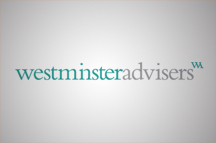 The long election campaign is postponing the conversation on NHS funding.
The long election campaign is postponing the conversation on NHS funding.
Interventions to date have either been limited to backbenchers a step removed from party policy machines, such as Liam Fox questioning NHS spending’s continued protection from cuts, or motivated by the effect the ring-fence has on other spending departments, as broached briefly by Vince Cable conscious of the reduction in BIS’s budget.
A month ago Labour had a foray into the issue with talk of a NIC rise specifically to fund healthcare. But little more has been forthcoming given doubts over whether voters will embrace the idea again on the back of a recession like they did when Labour took a similar step when the economy was booming back in 2002.
Perhaps we shouldn’t expect much more. An honest and open discussion about NHS funding is not a vote winner unless the money is going up. In an interview last week Ed Miliband implied that there isn’t the resource to throw substantial extra funds at the NHS, though given the controversy around the coalition’s health reforms and their potential for mobilising Labour’s core vote it seems unlikely the opposition won’t give health high visibility in its election campaign.
And then there is the received wisdom in government and, it appears, NHS England that efficiency and making existing spending go further – not extra cash – is the answer to the NHS’s problems.
But a recent report by the King’s Fund says more money might be exactly what needs to happen. Productivity savings may not be enough and eventually translate into service cuts. Initiatives to integrate and redesign care are facing questions, such as recent doubts from health policy wonks and the Cabinet Office about the Better Care Fund’s impact on hospitals. Meanwhile, ONS is saying the UK spends less on healthcare than others in the G7.
 The bigger question, therefore, is whether meaningful discussion will emerge after the general election. Post-election the government may have a brief window to reassess how best to meet the challenge set by NHS England’s view that there will be a £30bn health funding gap by 2020-21, against a backdrop of rising demand, potential for longer waiting lists and continued pressure on local authority social care funding.
The bigger question, therefore, is whether meaningful discussion will emerge after the general election. Post-election the government may have a brief window to reassess how best to meet the challenge set by NHS England’s view that there will be a £30bn health funding gap by 2020-21, against a backdrop of rising demand, potential for longer waiting lists and continued pressure on local authority social care funding.
In the meantime, Conservatives and Lib Dems will hope for another mild – though hopefully drier – winter and dodge pre-election talk of an NHS crisis.
Ian Targett
Director, Westminster Advisers
You can read more from the WA blog on their website.














